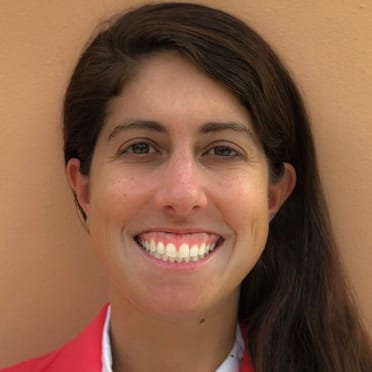How Venezuela shaped López, Rojas
MIAMI -- It has been nearly three years since Marlins right-hander Pablo López visited his hometown of Cabimas, which sits on the shore of Lake Maracaibo in northwestern Venezuela.
López, 25, remembers walking past the general store where he and his friends asked for bottle caps so they could try hitting them with a broomstick. He remembers driving past the stadiums he grew up playing in, a teenager with dreams of pursuing a professional baseball career rather than following his late parents' footsteps in medicine.
That trip took place during the 2018-19 holiday season. López had flown in from South Florida. His father and a cousin traveled from Mexico. Other members of his family, including his sister and maternal grandparents, still reside in Venezuela.
But that visit came amid the backdrop of continued intense political and economic strife back home. Since former president Hugo Chávez was elected in 1998, the country has experienced an economic collapse, creating widespread shortages in basic supplies. There has also been turmoil within the government, with Chávez's right-hand man Nicolás Maduro remaining in the presidental palace even though more than 50 other countries, including the United States, recognize Juan Guaidó, leader of the National Assembly, as president.
"When I was in the Minor Leagues, obviously I wanted to play as long as I could. But always when it was time to go back, it was like a fun time, because I was able to just go back and enjoy time with my family and all that," López said. "Uneasy times have made it a little harder. You have to take more things into consideration that you would want to before making the decision to go to your hometown to visit your family."
Marlins shortstop Miguel Rojas can relate.
Rojas, 32, last went home in 2019 when he played winter ball for Tiburones de La Guaira. Tierra de Gracia, the land that shaped Rojas, still holds a special place in his heart. His entire family still lives there, including his mother, who is battling cancer. He wrestled with the decision about whether to return over the past month, before deciding to remain with the club until the season is over. Rojas believes his responsibility lies in making a living to support everyone.
"You can never forget about your community, even if they're not in a great place," Rojas said. "In good and bad, Venezuela is my home country, and I will always come back there and try to help my community as much as I help the community in Miami."
This strife is why Rojas volunteers with Raíces Venezolanas (Venezuelan Roots), an organization that gives donated household goods to newly arrived Venezuelans in need. Like López, Rojas signed a professional baseball contract as a teenager rather than continuing his engineering studies in college.
Around the Marlins' clubhouse are others who can relate. First baseman Jesús Aguilar (Maracay), catcher Sandy León (Maracaibo), as well as right-handers Elieser Hernandez (Ocumare del Tuy) and Luís Madero (Maracay) -- all of whom appeared for the 2021 Marlins -- hail from Venezuela. Rojas takes pride in keeping with the tradition of Venezuelan shortstops like Omar Vizquel, Dave Concepción, Luis Aparicio and Alcides Escobar.
"I always carry that enthusiasm," Rojas said. "Venezuela is a really happy country, and I'm always trying to send that vibe to all my teammates, the people that are around me, the fans, baseball itself, the game. I try to play the game with a lot of joy and a lot of fun, and that's what I feel like defines me as a Venezuelan -- that I'm always going to be playing the game with that swag and the hands as a shortstop."
Rojas, the longest-tenured Marlin and the club's unofficial captain, has helped many of these teammates with the assimilation process. He provides tips on where to go or where to rent.
What they've all found are some reminders of home. Thanks to the influx of immigrants from nearby Latin America (Hispanics made up 69.4 percent of the Miami-Dade County population, as of the 2019 U.S. Census Bureau's quick facts) South Florida showcases unrivaled diversity. The region has adopted the culture -- everything from music to cuisine -- that connects people back to their homeland. It also doesn't hurt that the weather is pretty much the same.
"The food makes it so much easier, and growing up, I used to go to this place called Margarita Island," López said. "That's the island where my mom was born. So every summer we would road trip around the country and we would always end up there. I really enjoy going to the beach, and it just kind of reminds me a little bit of when I was growing up every summer and being able to go swim in the ocean."
Both López and Rojas credit Venezuela for shaping them into who they are today. López was last year's recipient of the Charlie Hough Good Guy Award, presented by the Miami chapter of the Baseball Writers' Association of America. Rojas recently was named the Marlins' Roberto Clemente Award nominee for a second straight season.
Though their lives and circumstances have changed over the years, one thing hasn't -- that yearning to go back home.
"I live in Miami now, but Venezuela is what I come from," Rojas said. "The old streets that I used to walk and the ballparks that I used to work out at and places that have a lot of friends over there that I haven't seen in a while, I feel like that's kind of the Miguel Rojas that I want to remember when I was younger."

